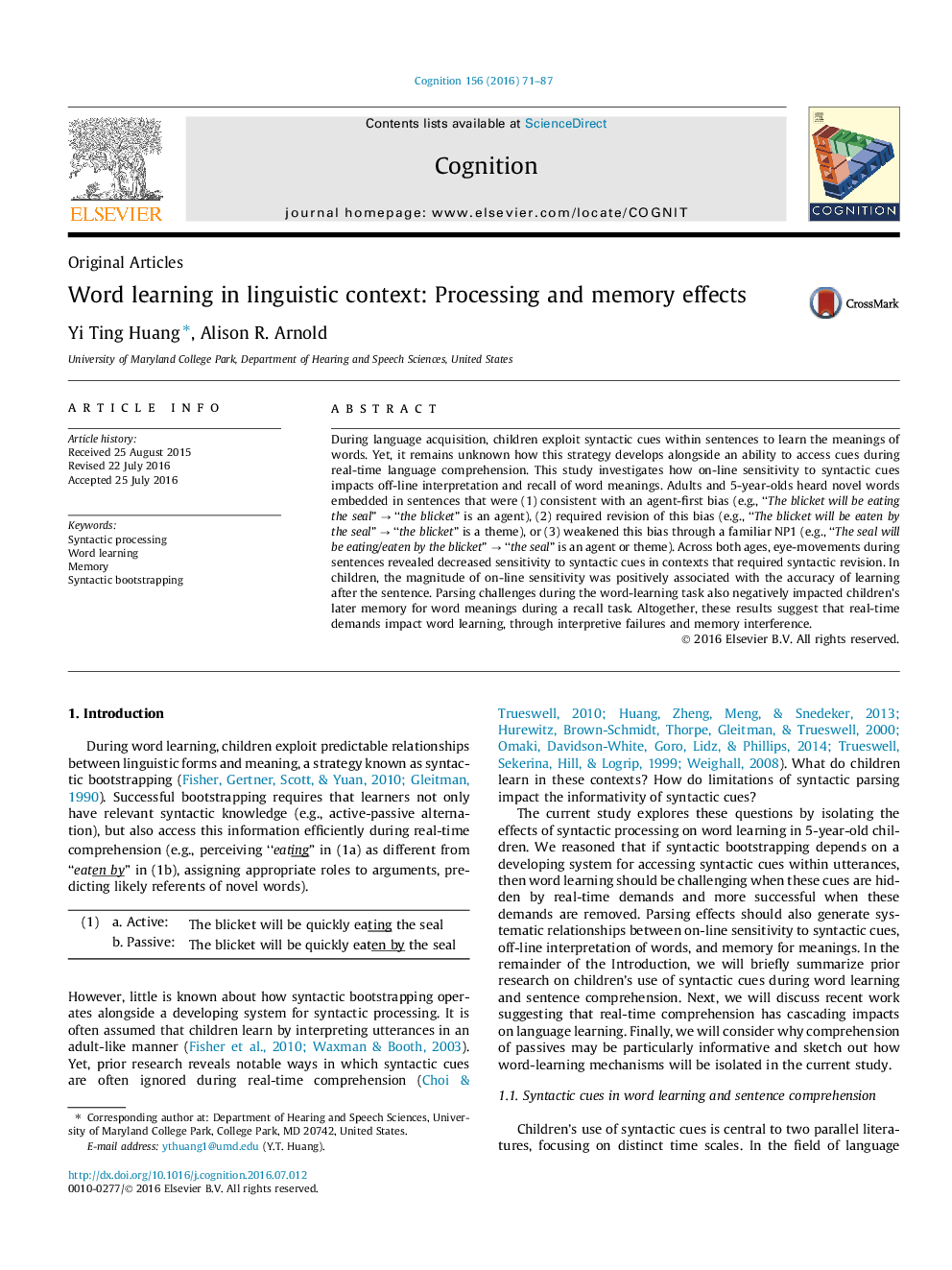| Article ID | Journal | Published Year | Pages | File Type |
|---|---|---|---|---|
| 926317 | Cognition | 2016 | 17 Pages |
•This study demonstrates effects of real-time parsing on syntactic bootstrapping.•Adults and 5-year-olds are less sensitive to syntactic cues in contexts requiring revision.•In children, on-line sensitivity to syntactic cues predicts accuracy of word interpretation.•In children, real-time demands during learning negatively impacts memory for meanings.
During language acquisition, children exploit syntactic cues within sentences to learn the meanings of words. Yet, it remains unknown how this strategy develops alongside an ability to access cues during real-time language comprehension. This study investigates how on-line sensitivity to syntactic cues impacts off-line interpretation and recall of word meanings. Adults and 5-year-olds heard novel words embedded in sentences that were (1) consistent with an agent-first bias (e.g., “The blicket will be eating the seal” → “the blicket” is an agent), (2) required revision of this bias (e.g., “The blicket will be eaten by the seal” → “the blicket” is a theme), or (3) weakened this bias through a familiar NP1 (e.g., “The seal will be eating/eaten by the blicket” → “the seal” is an agent or theme). Across both ages, eye-movements during sentences revealed decreased sensitivity to syntactic cues in contexts that required syntactic revision. In children, the magnitude of on-line sensitivity was positively associated with the accuracy of learning after the sentence. Parsing challenges during the word-learning task also negatively impacted children’s later memory for word meanings during a recall task. Altogether, these results suggest that real-time demands impact word learning, through interpretive failures and memory interference.
